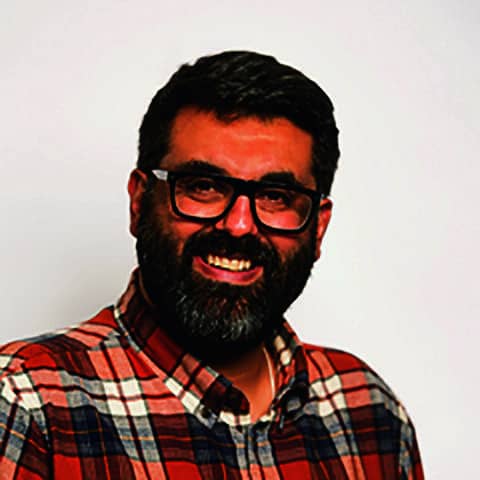
The world changed in 2020. I don’t need to explain how. In and among the unprecedented global health crisis, we were fighting a serious risk to public health, and that was the spread of misinformation.
A piece of research by the University of Oxford fact-checked 225 pieces of information relating to the pandemic. Their research found that a majority (88%) of the misinformation appeared on social media platforms. The area of concern in their research was that most (59%) of the misinformation in their sample involved various forms of reconfiguration, where existing and often true information is spun, twisted, recontextualised or reworked.
Where am I going with this? We as an industry have a responsibility to tackle this misinformation and help to support our purpose as an industry by embracing creativity and innovation, which must continually evolve to maintain the health of populations, and this starts with understanding people’s beliefs.
Human beliefs have played a role in healthcare since the beginning of time, but for many years the modern medicine community preferred to ignore these, than to engage with them. The same belief systems that prevent people from seeking healthcare also cause cultural barriers to health engagement, for instance religion and culture.
Religion
It’s easy to discount the power of religion on healthcare, but we’re learning that it doesn’t necessarily fall outside the jurisdiction of modern medicine. Several religious, cultural and ethical beliefs prevent people engaging in their own health. On the religious front, these include:
- Hinduism – products derived from pigs Or cows are prohibited
- Jehovah’s Witnesses – products derived from or containing blood are prohibited
- Judaism – products derived from pigs are prohibited
- Sunni and Shiite Islam – products from pigs are prohibited.
To resolve this, it’s important that any creatives do not try to hide the facts from anyone. There are many potential participants out there who don’t practice their faith daily and don’t care particularly about these issues, and there are others who will participate despite them.
State clearly what the ingredients and other associations of the treatments are, and you’ll win the trust and confidence of the audience. You’ll also exclude from the outset those who aren’t able to overcome these cultural barriers. That’s far better than having them drop out midway when they discover facts that they were unaware of.
Culture
Cultural barriers often also come in the form of modesty issues, such as for Muslim, Sikh and Hindu women who prefer to be seen by female doctors. Unless the creative or innovation clearly addresses this in advance, it risks losing women from these demographics who might have a concern about being examined by a male doctor.
To ensure culture is addressed, specify under what conditions participants will be examined. Include medical professionals with various gender identities and cultural backgrounds, and provide the option for participants to ask for the type of doctor they prefer.
We are more than our condition
Yet, it is the distinctions between these two conditions, mild health worry and long-term illness, that carry certain presumptions. If you go out and have a look at the health communications industry, or even scientific research, you’ll see a wealth of information on people living with conditions like AIDS or cancer. With cultural implications that became most prevalent during the 1980s, linked to icons like Freddie Mercury, AIDS still bears the weight of ill-informed opinions of the condition. It is these presumptions that can affect people negatively, leading them to believe that they are their condition, when in fact, they are more than that. Contrastingly, cancer can be seen by many as a death sentence, a marker of frailty and sickness. While cancer remains elusive in terms of a definitive cure, science is now advancing at a phenomenal rate, and there are new clinical trials all the time that are offering hope to people. The key is to see past the illness, disease or condition. To see the human beings, with all their traits, hopes and aspirations.
Once we, the healthcare communications industry and beyond, actively do away with those societal connotations of illness that are not founded on scientific evidence and accurate research, we can begin to create innovations that empower the people we encounter, create materials for and, ultimately, support to lead their best lives.
Ash Rishi is CEO and Co-Founder of COUCH Health





